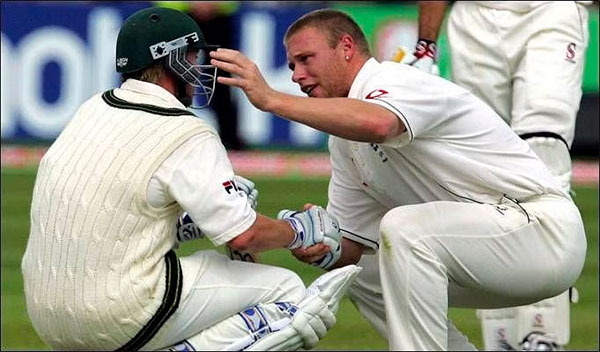How times change: John McEnroe says ‘winning isn’t everything’, Ben Stokes takes defeat on chin
The way people view winning and losing in the realm of sports has changed substantially throughout time. Recently, two prominent sports personalities, John McEnroe and Ben Stokes, showcased contrasting approaches to competition. John McEnroe, known for his fiery and competitive nature during his tennis career, has surprised many by expressing a more balanced perspective on winning. On the other hand, cricketer Ben Stokes demonstrated exemplary sportsmanship by gracefully accepting defeat. These contrasting attitudes illustrate how times change and shed light on the evolving mindset in the realm of sportsmanship.
John McEnroe: Embracing a Shift in Philosophy

The famed tennis player John McEnroe was renowned for his fierce rivalry on the court. His outbursts and altercations with authorities became defining characteristics of his career. Winning isn’t everything, McEnroe shockingly declared in a recent interview, shocking both his followers and critics. There has been a significant shift in his thinking as evidenced by his admission that, while winning is vital, it shouldn’t be the primary yardstick for success or happiness in athletics at https://mybettingapps.in/legal-sports-betting-apps/.
As McEnroe has aged and gained wisdom through his experiences, he seems to have developed a more nuanced understanding of the game. He now appreciates the journey and the effort put forth by athletes, regardless of the final outcome. This shift in philosophy highlights the growth and maturity that can occur in even the most competitive and intense athletes over time.
Ben Stokes: A Beacon of Sportsmanship
![]()
Ben Stokes is well-known for his extraordinary talent and all-around abilities in the sport of cricket. He has been the English cricket team’s motivating factor, single-handedly changing games in their favour. Stokes shown exceptional sportsmanship during one of the heartbreaking moments in the game of cricket, which is full of both triumphant and heartbreaking moments.
Stokes and his squad suffered a difficult loss in a vital game. Stokes accepted the outcome with tremendous elegance and grace despite the defeat. Instead of concentrating on the drawbacks of the game, he chose to highlight the team’s accomplishments. By remaining calm and humble in the face of defeat, he set a great example for other athletes.
A Reflection of Changing Sporting Values
 The different approaches taken by John McEnroe and Ben Stokes are an example of how sportsmanship and competition are evolving. Sports were once frequently viewed as life-or-death contests, and sportsmen were expected to put winning first and foremost. Sports’ beliefs and guiding concepts change along with society.
The different approaches taken by John McEnroe and Ben Stokes are an example of how sportsmanship and competition are evolving. Sports were once frequently viewed as life-or-death contests, and sportsmen were expected to put winning first and foremost. Sports’ beliefs and guiding concepts change along with society.
Modern athletes are embracing a more comprehensive approach to sport, emphasising personal development, teamwork, and fair play in addition to winning. Nowadays, athletes are aware that losing is a necessary part of the sporting journey and can be a fruitful learning opportunity. By placing an emphasis on comradery, respect, and sportsmanship rather than merely winning, this new viewpoint contributes to the development of a healthier and more constructive environment in the world of sports.
Conclusion: Embracing the Evolution of Sportsmanship

The evolution of attitudes towards winning and losing in sports, as demonstrated by John McEnroe and Ben Stokes, signifies a positive shift in the sporting world. While McEnroe’s change in philosophy showcases the growth and maturation of competitive athletes over time, Stokes’ sportsmanship serves as a beacon of grace and dignity in the face of defeat.
These contrasting approaches highlight the importance of embracing change and evolution in sportsmanship. By recognizing that winning isn’t everything and that defeat can be a valuable teacher, athletes foster a culture of respect, humility, and camaraderie. Athletes and spectators must accept these changing viewpoints as society evolves and enjoy how sports have a transforming influence on people’s personalities and society as a whole.
